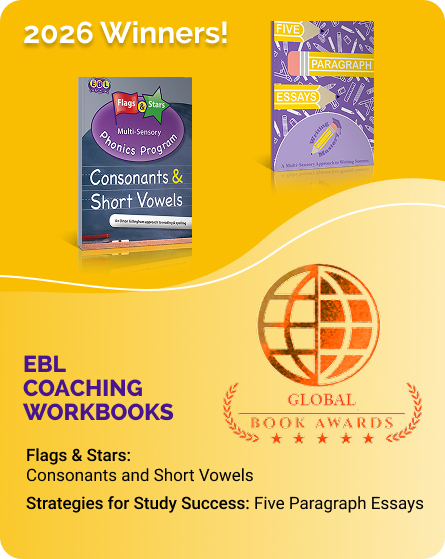Online Tutoring for Students with Learning Disabilities

We specialize in providing diagnostic and prescriptive tutoring plans for each student, including initial academic assessments and expert instruction.
Contact Us or Call (212) 249-0147
Ways to help students with learning disabilities online:
Teach Visualization Techniques Onlines
When visual learners read, they tend to process and remember information better when they can “see” or visualize it. To teach this visualization skill, have your child read a basic sentence out loud, such as “Three boys sat at the campfire.” Ask him to try to form a picture of this sentence in his mind, then ask prompting question to help him elaborate upons his image, such as: Who? What? Where? What color(s)? How many? How big/small? You can also ask your own elaboration questions, such as, in this case, where he thinks the boys were and how they knew each other. You can ask him to describe the colors and sounds in his image, what the boys were doing at the campfire (Roasting marshmallows? Telling ghost stories?), and perhaps ask him to describe physical descriptions of each boy. The more vivid an image he can create in his mind, the more likely he will be to remember the information. Later, try this same exercise with full paragraphs and stories.
Online Tutoring and Specialized Schools for Students With Learning Disabilities
How can you decide if a specialized school is right for your child? Dr. Emily Levy shares the pros and cons of signing up.
Your fourth grade daughter was diagnosed with dyslexia and is struggling to read. Your son with ADHD constantly loses his belongings and has difficulty staying focused. Perhaps you have child with a writing disorder, math disorder, or language challenges who is having trouble mastering basic skills. If any of these scenarios describes your child and she is struggling to stay afloat academically, it may be time to explore a specialized school. Let’s take a look at the pros and cons of switching your child to this type of school.
Online Reading Comprehension
Becoming an active reader can help students improve their overall comprehension and memory skills. To build this skill, before reading a passage or text book selection, ask your child to review any headers, sub-headers, pictures, picture captions, and vocabulary words. You can also talk to him about prior knowledge he may have about the topic before reading, and have him predict what he thinks the passage will be about before he begins. Also, as he reads, have him highlight the topic (one, two, or three words describing the passage) in blue, main idea (what the author is saying about the topic) in green, and the important details (important information describing the main idea) in yellow. These active reading strategies will help improve his processing and overall reading comprehension skills.
What are the biggest learning challenges online we see in the various age groups?
EL: Preschool: Many toddlers have trouble grasping the names of letters and their corresponding sounds. They also may have trouble with rhyming, recognizing sounds in words, and identifying syllables.
Kindergarten/1st Grade: Many children have trouble decoding, or blending sounds together to form words when reading and spelling. They also may have trouble comprehending what they read, especially if reading is a slow, laborious process for them.
2nd/3rd Grade: Students often have trouble with reading fluency and understanding how to break down math word problems. They might have nice ideas but struggle to express them on paper when writing.
Upper Elementary: As students move from learning to read to reading to learn, the emphasis on reading for understanding becomes greater. Thus, many children struggle to identify salient information when reading and grasp the main idea. They also may struggle to express their ideas on paper in the form of well-written paragraphs and have trouble solving multi-step problems.
Middle/High School: At this age students often struggle with study and organizational skills. They may have trouble taking notes, managing their time, organizing their belongings, and studying for tests – along with core academic challenges, such as writing, reading comprehension, and math.
How Can We Introduce the Idea of Basic Learning Skills Online?
EL: Starting from as young as age two, parents can develop basic skills with their children in “fun” and engaging ways. For example, drawing letters with your fingers together in sugar or colored sand, or writing letters on the bottoms of rubber duckies and having your child flip them over in the bath and indicate the name or phonetic sound of the letter they found. You can also teach basic math skills through play. For example, have the child build two block towers and talk about which tower is taller or shorter and which has more or less blocks. The “Let’s Take a Trip” game is also great. The parent starts out with something like, “I took a trip to the store and bought two pieces of fruit. Show me what I bought.” The child pulls out two pieces of fruit from the fridge. Next, the parent says, for example, “I was still hungry so I went back to the store and bought three more pieces of fruit.” The child pulls out three more pieces of fruit. The parent then says, “How many pieces of fruit did I buy altogether?” The child counts the pieces of fruit and says five. The key is to keep the exercises playful, fun, and engaging.
ADHD treatment in NJ.
The main goals of our tutoring team are:
- To help improve a child’s self-esteem, which is often lost when experiencing repeated failure.
- To teach time management skills that help in developing a healthy balance between a student’s academic and social life.
- To improve a child’s powers of concentration.
- To help students develop social skills, including interaction with friends and others.

